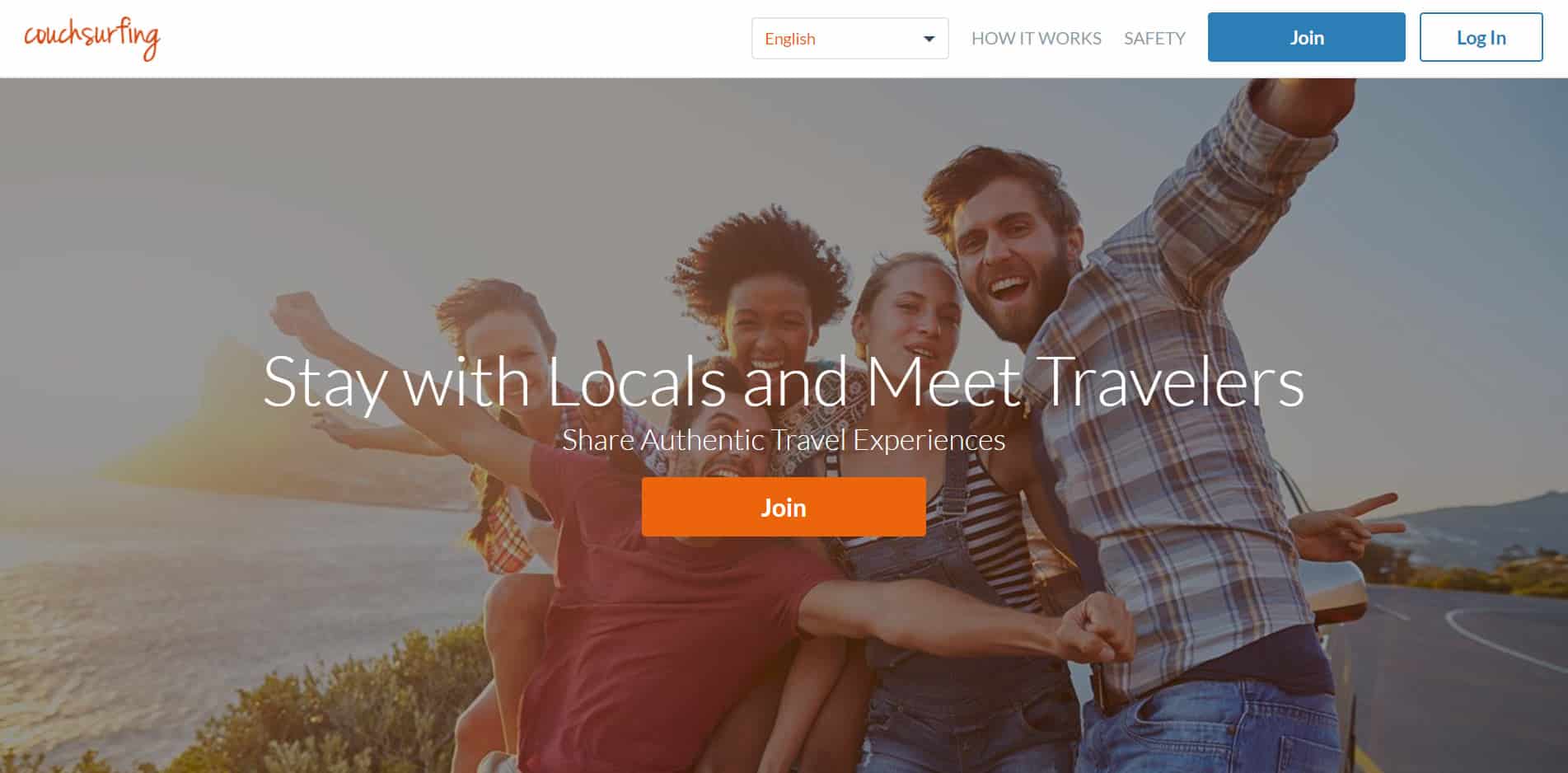
Is Couchsurfing Still a Thing? How the Once-Free Travel Community Changed After Going Corporate. The rise and evolution of Couchsurfing, from a grassroots hospitality exchange to a for-profit entity, encapsulates the broader challenges faced by online communities striving to balance idealistic principles with the realities of financial sustainability. What began as a simple act of extending hospitality has become a complex case study in the dynamics of community, commerce, and the evolving landscape of travel.
Couchsurfing’s origins trace back to 2004, when co-founder Casey Fenton, seeking accommodation in Reykjavik, Iceland, sent out a mass email to over 1,500 students. The overwhelming response, with dozens offering him a place to stay, sparked the idea for a platform that could connect budget travelers with hosts willing to open their homes. This initial act of generosity and trust formed the bedrock of the Couchsurfing ethos: a belief in shared experiences, cultural exchange, and the power of human connection. The website became a digital embodiment of this philosophy, providing a space for backpackers to find free lodging and "live like a local," while offering hosts the opportunity to meet people from diverse backgrounds. This reciprocal arrangement, often involving surfers contributing by cooking meals, sharing languages, or teaching skills, fostered a strong sense of community.
However, the transformation of Couchsurfing from a non-profit organization to a for-profit company has fundamentally altered its character, leading many long-time members to feel that the platform has strayed from its original, community-centered values. The initial shift occurred in 2011, when Couchsurfing was denied non-profit status and transitioned into a B-Corp, a for-profit business recognized for its positive social impact. While this move was presented as a necessary step for the organization’s survival and growth, it triggered mixed reactions within the community. Some members recognized the need for financial stability, while others viewed it as a betrayal of the platform’s founding principles.
This transition was further complicated by the subsequent influx of venture capital. Over $20 million in investment funding was raised, signaling a new era of corporate ambition. While the website’s membership doubled to 7 million users under the leadership of then-CEO Tony Espinoza, this rapid growth also brought new challenges. The influx of new members, some of whom were perceived as simply seeking free accommodation rather than engaging in genuine cultural exchange, diluted the community’s original ethos.
"The soul of Couchsurfing was always its emphasis on authentic connection and shared experiences," notes Dr. Eleanor Vance, a sociologist specializing in online communities. "The shift towards a for-profit model inevitably prioritized growth and revenue generation, potentially at the expense of those core values." This sentiment reflects the concerns of many long-time Couchsurfing members who felt that the platform was losing its unique character.
In 2015, Patrick Dugan, who also ran a private equity firm, became a majority shareholder and assumed the role of CEO. This marked a significant turning point, with most of the original staff and volunteers, including the founders, being laid off or resigning. The platform continued to expand, but trust among some members eroded, as they felt that the new direction prioritized profit over community. A movement emerged, with members using blogs and social media to advocate for leaving Couchsurfing in favor of alternative hospitality exchange platforms.
The pressure to generate revenue intensified, leading to various monetization attempts. From paid verification services, which saw limited adoption, to advertisements that yielded minimal returns, Couchsurfing struggled to find a sustainable business model. The introduction of a mandatory annual subscription fee of $14.29 in May 2020, ostensibly to ensure the company’s survival during the COVID-19 pandemic, proved to be a pivotal moment. The implementation of this paywall, without prior consultation with the membership, triggered widespread outrage and fueled concerns about data privacy.

The paywall directly contradicted a 2011 promise made by co-founder Casey Fenton that Couchsurfing would never require payment for surfing or hosting. This perceived broken promise served as the final straw for many members, who had already witnessed years of the platform’s struggles to maintain its original community spirit. A mass exodus ensued, with users seeking out or creating alternative platforms that promised to uphold the values of free hospitality and cultural exchange.
According to a recent industry report, the global hospitality exchange market, of which Couchsurfing was once a dominant player, is estimated to be worth $3.5 billion. However, since the introduction of the paywall, Couchsurfing’s market share has reportedly decreased by an estimated 15%, with alternative platforms experiencing a surge in user growth. This suggests that while the demand for community-based travel experiences remains strong, travelers are increasingly seeking alternatives to Couchsurfing.
One of the most significant challenges facing Couchsurfing has been addressing safety concerns, particularly for female users. Reports of predatory behavior and inadequate responses to complaints have plagued the platform for years. A Change.org petition from 2010 highlighted these issues, indicating that they are not a recent development. The perception that Couchsurfing has not taken safety concerns seriously enough has further contributed to the decline in user trust and the migration to alternative platforms, some of which are specifically designed to cater to women.
"The key to a successful hospitality exchange platform is fostering a sense of trust and safety among its users," argues Marcus Bellwether, a travel industry analyst. "This requires robust verification processes, clear community guidelines, and a proactive approach to addressing reports of misconduct. Failure to prioritize safety can have devastating consequences for both the platform and its users."
Despite these challenges, some Couchsurfing users remain loyal to the platform. They argue that it still offers unique opportunities for cultural exchange and connection. However, the prevailing sentiment among former and long-time members is that Couchsurfing has fundamentally changed, losing the essence of what made it special. The community that once felt like a welcoming and unconventional haven has, for many, become just another travel meetup platform.
The future of Couchsurfing remains uncertain. The platform faces intense competition from alternative sites that are attempting to recapture the community feel of its early days. These include platforms like Trustroots, BeWelcome, Couchers, Host A Sister, and Warm Showers. While these alternatives have yet to achieve the same scale as Couchsurfing, they are gaining traction among travelers who are seeking a more authentic and community-driven experience. An estimated 45% of former Couchsurfing users have migrated to these alternative platforms in the last three years.
The challenge for these alternative platforms is to scale their user base while maintaining the core values of trust, safety, and community that have been eroded on Couchsurfing. This requires a delicate balance between growth and governance, ensuring that the platform remains true to its original mission while also adapting to the evolving needs of its users.
Ultimately, the story of Couchsurfing serves as a cautionary tale about the challenges of balancing idealistic principles with the demands of commercial success. While the platform may still offer some value to travelers seeking budget accommodation and cultural exchange, it has lost much of the community spirit that defined its early years. As travelers continue to seek authentic and meaningful travel experiences, the future of hospitality exchange may lie in the hands of smaller, more community-focused platforms that prioritize people over profit. The long-term consequences of Couchsurfing’s transformation could be a fragmentation of the hospitality exchange market, with travelers seeking out niche platforms that cater to specific interests and values. The global impact could be a shift towards more localized and sustainable forms of travel, as travelers prioritize authentic connections with local communities over mass tourism.



